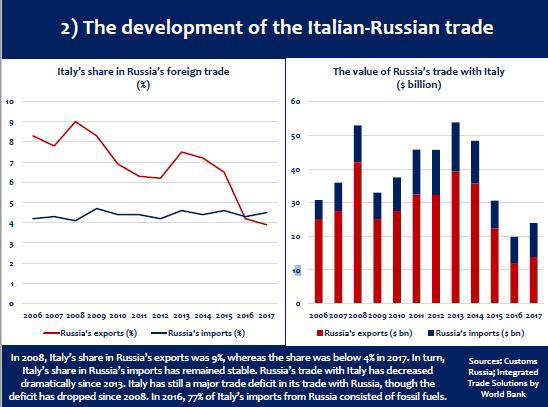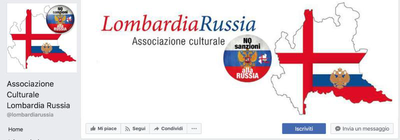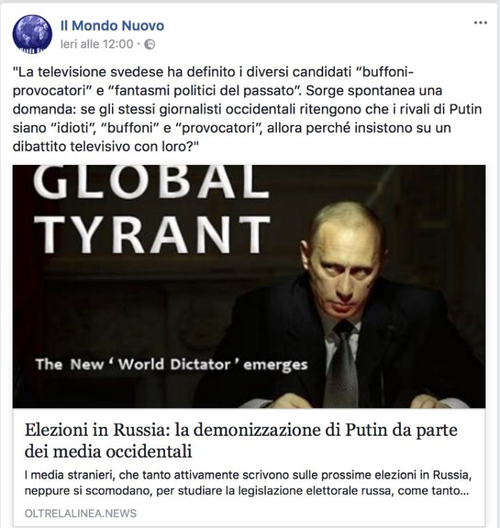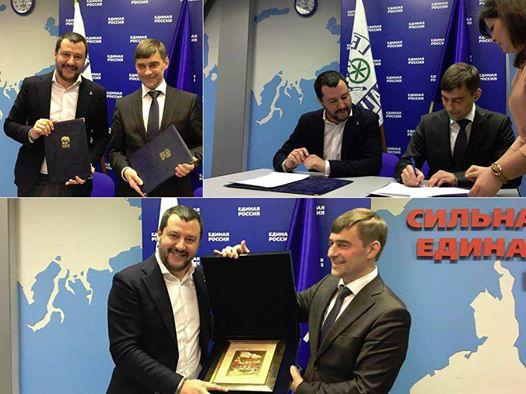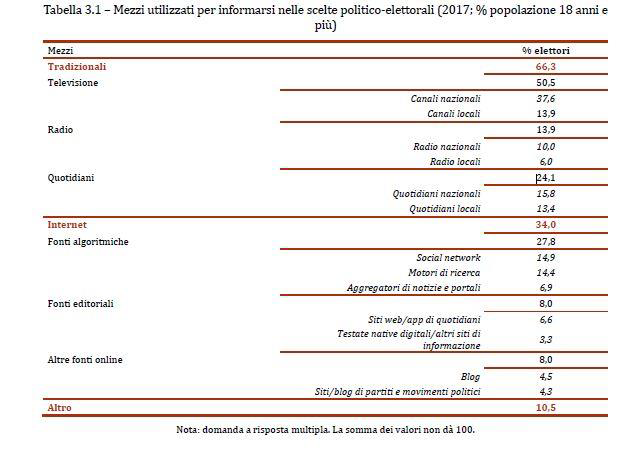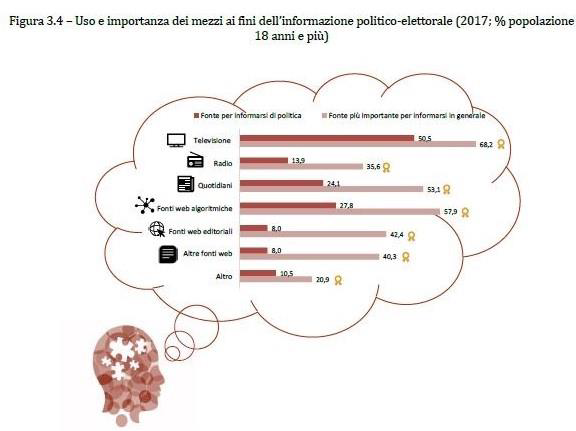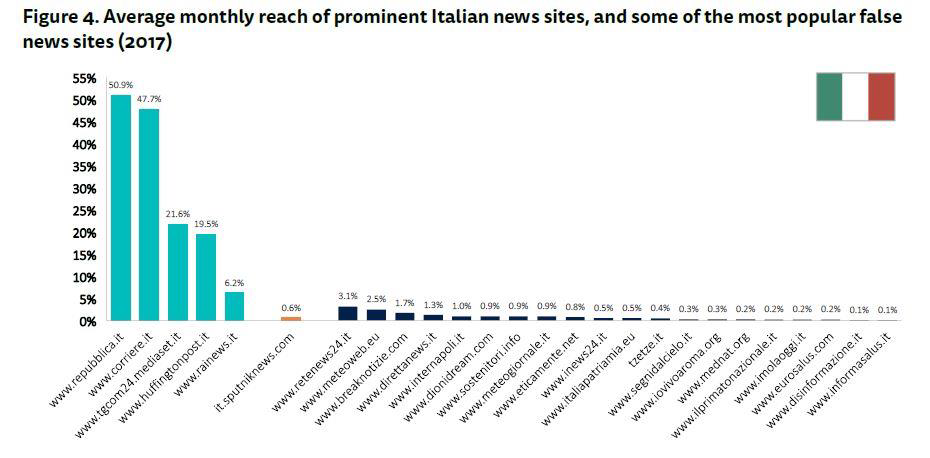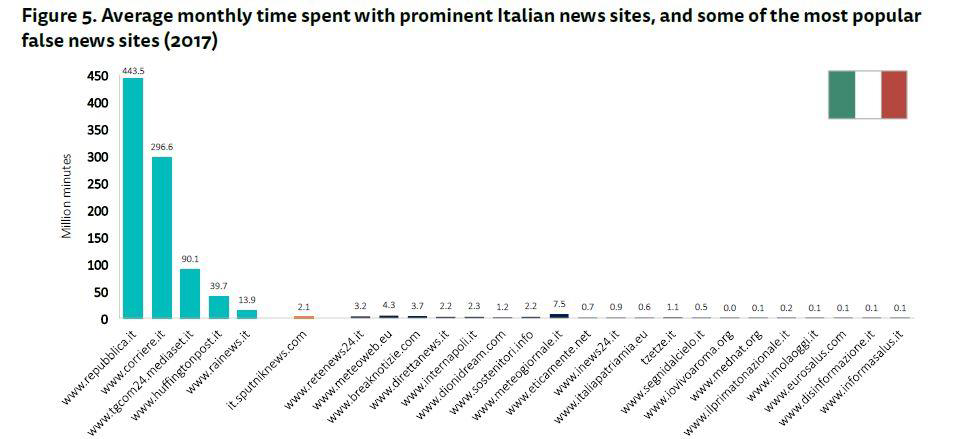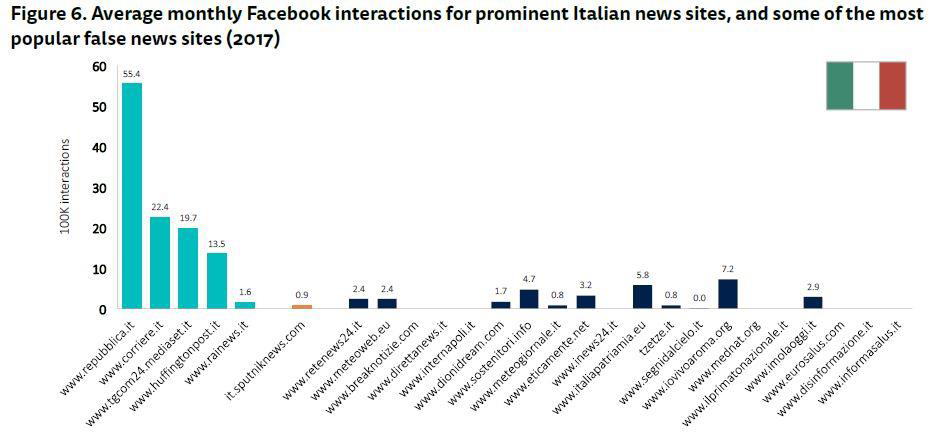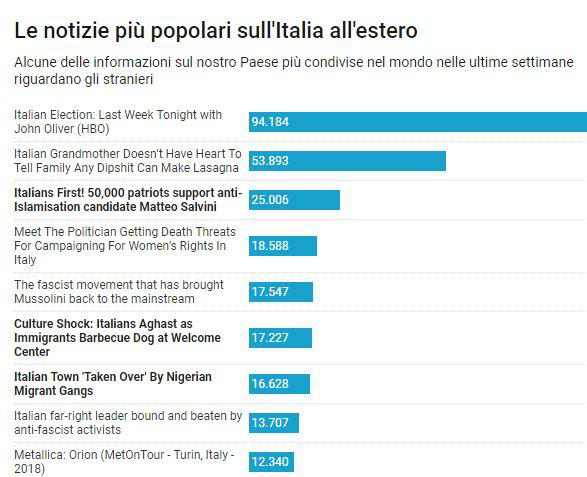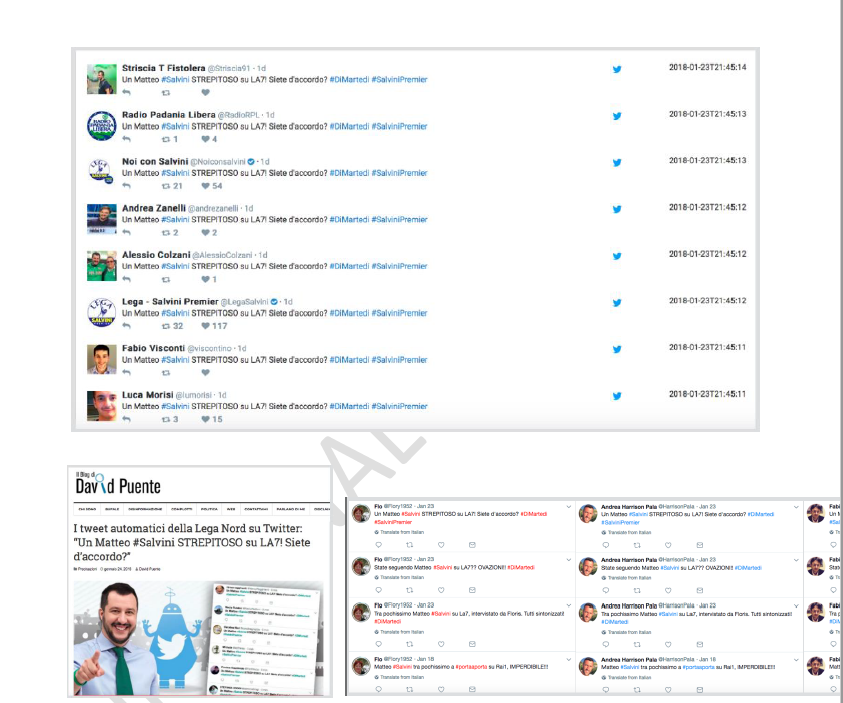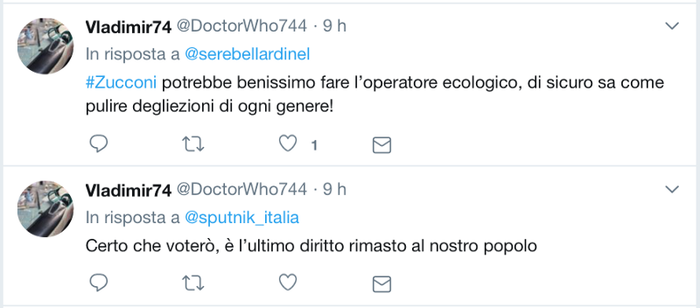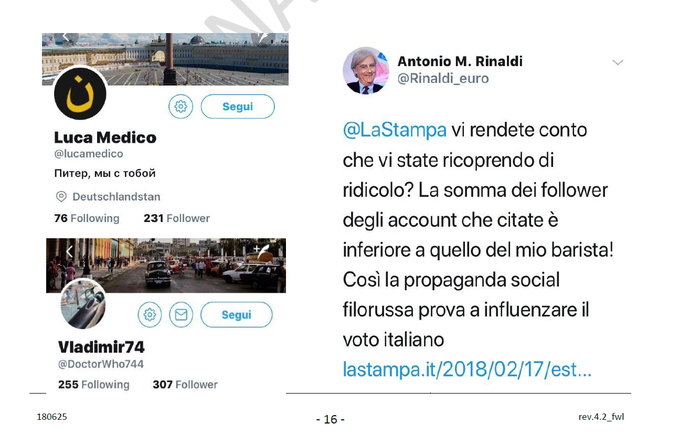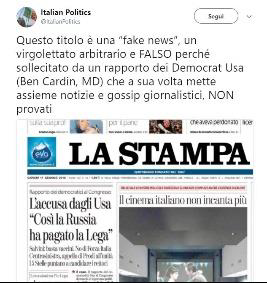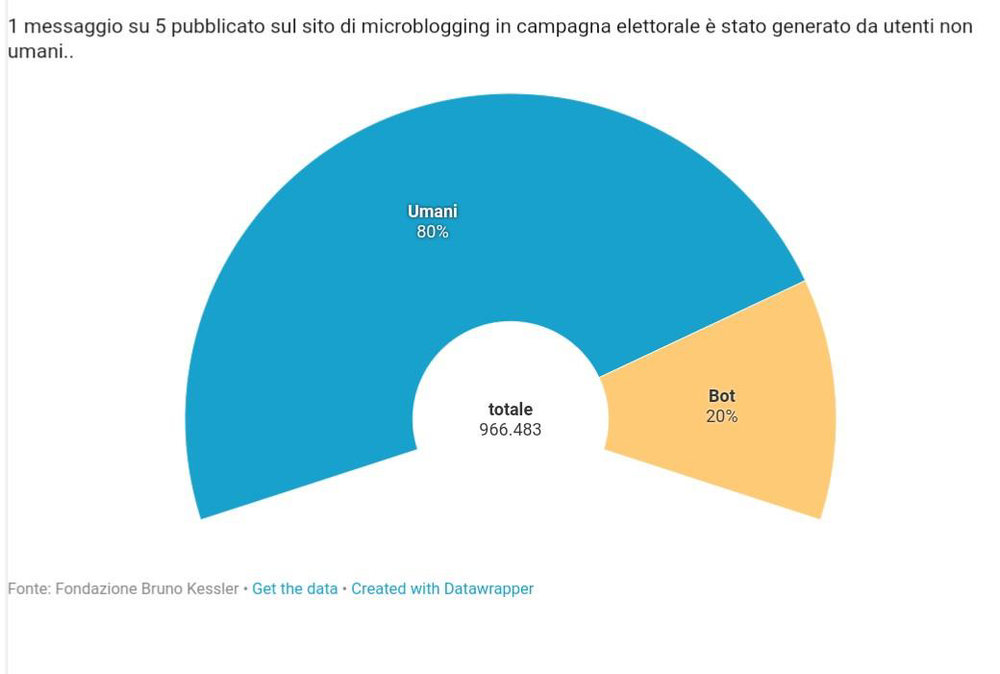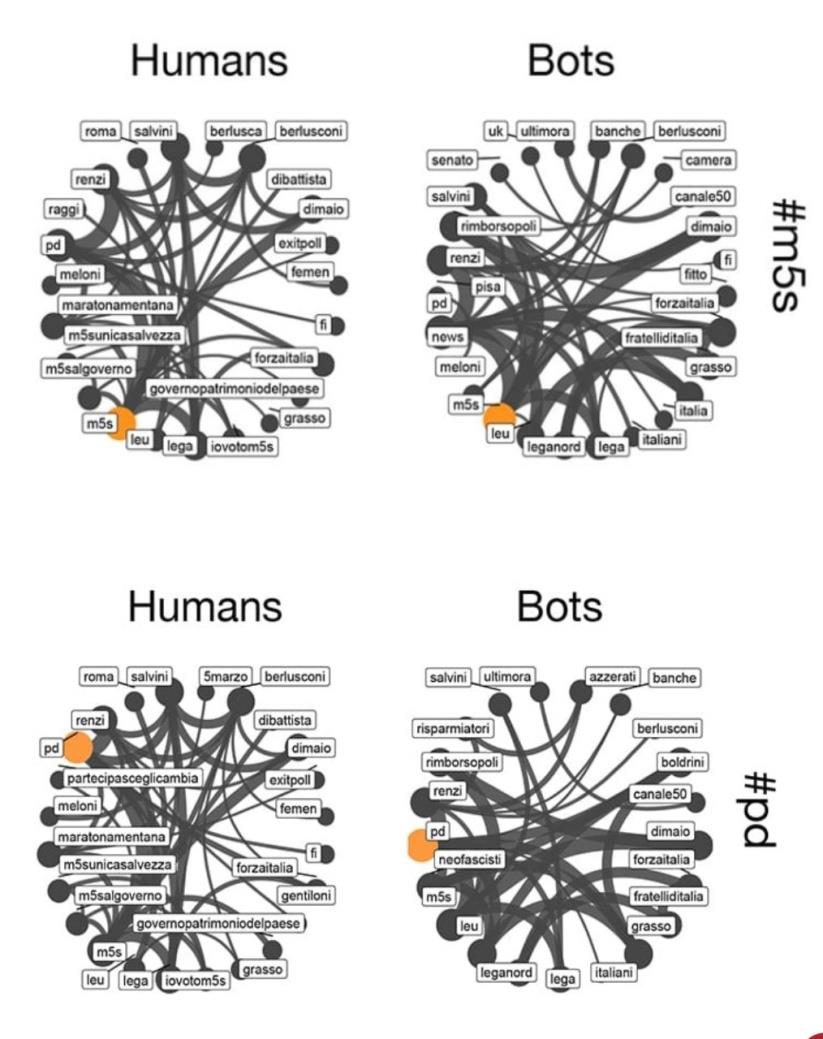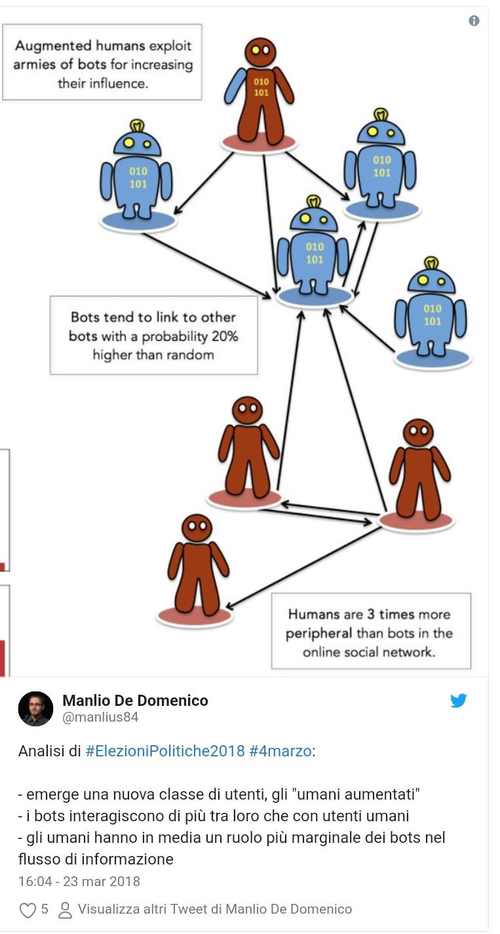Difference between revisions of "Document:Russia and the Italian Elections"
m |
m (Text replacement - "|subject=" to "|subjects=") |
||
| (2 intermediate revisions by the same user not shown) | |||
| Line 6: | Line 6: | ||
|publication_date=25 June 2018 | |publication_date=25 June 2018 | ||
|source_name='Anonymous' | |source_name='Anonymous' | ||
| − | |source_URL=https:// | + | |source_URL=https://fdik.org/Integrity_Initiative/russia-and-it-electionsfinalfwl.pdf|subjects=Italy |
| − | | | ||
|constitutes=Integrity Initiative/Leak/3 | |constitutes=Integrity Initiative/Leak/3 | ||
|description="For internal use only". Analysis of Italian election meddling - where some political parties apparently are trying to influence public opinion: "In Italy, appears evident that the promotion of a strategy to spread disinformation and to influence the Italian political opinions, has been limited and came much more from national populist parties, rather than from Russia or whatsoever foreign country." | |description="For internal use only". Analysis of Italian election meddling - where some political parties apparently are trying to influence public opinion: "In Italy, appears evident that the promotion of a strategy to spread disinformation and to influence the Italian political opinions, has been limited and came much more from national populist parties, rather than from Russia or whatsoever foreign country." | ||
| Line 31: | Line 30: | ||
The election campaign has been exposed to a massive speculation of a possible Russian interference, in the wake of Putin’s disinformation and cyber hacking operations against Western democracies, well-known as the “Russiagate” scandal that affected the 2016 US presidential elections. | The election campaign has been exposed to a massive speculation of a possible Russian interference, in the wake of Putin’s disinformation and cyber hacking operations against Western democracies, well-known as the “Russiagate” scandal that affected the 2016 US presidential elections. | ||
While there are indications that Russia has supported European conservative and populist movements, exploiting vulnerabilities in European politics or resorting to disinformation campaigns and cyber-attacks, such assumptions has not been confirmed by concrete actions, evidences or other data during the last Italian elections. Moreover, the consideration that Putin has among the leaders of the center-right parties and the 5 Star Movement, doesn’t offer credibility to the rumors of a possible Russian “meddle” on occasion of the March 4 elections. | While there are indications that Russia has supported European conservative and populist movements, exploiting vulnerabilities in European politics or resorting to disinformation campaigns and cyber-attacks, such assumptions has not been confirmed by concrete actions, evidences or other data during the last Italian elections. Moreover, the consideration that Putin has among the leaders of the center-right parties and the 5 Star Movement, doesn’t offer credibility to the rumors of a possible Russian “meddle” on occasion of the March 4 elections. | ||
| − | In fact, the positive relations between Russia and Italy, date back to decades antecedent the political rise of Matteo Salvini, Luigi di Maio, or than the long-standing Putin’s friendship with the former Italian Prime Minister, Silvio Berlusconi. | + | In fact, the positive relations between Russia and Italy, date back to decades antecedent the political rise of [[Matteo Salvini]], Luigi di Maio, or than the long-standing Putin’s friendship with the former Italian Prime Minister, Silvio Berlusconi. |
As stated by the Russian expert Nadezhda Arbatova, head of the Department of European Policy Studies at the Institute of World Economy and International Relations (IMEMO) in Moscow, the two countries maintain "close traditional ties" since the eighteenth century. This sentence outlines the political, cultural and economic relationships developed between Rome and Moscow, even during the Cold War, when they belonged to opposite blocs. | As stated by the Russian expert Nadezhda Arbatova, head of the Department of European Policy Studies at the Institute of World Economy and International Relations (IMEMO) in Moscow, the two countries maintain "close traditional ties" since the eighteenth century. This sentence outlines the political, cultural and economic relationships developed between Rome and Moscow, even during the Cold War, when they belonged to opposite blocs. | ||
| Line 65: | Line 64: | ||
==The League and Putin== | ==The League and Putin== | ||
| − | While the speculations concerning the Russian funding of the League’s election campaign proved to be inconsistent, what is concrete is the pragmatic relationship that the League has fostered with Putin and the official partnership established with its political party United Russia. Since its foundation in 1990, Matteo Salvini's party has always acclaimed its closeness to Moscow, by considering it a friendly partner while criticizing the EU austerity and migration policies. Moreover, if we consider that a huge number of League’s voters belongs to those North and Northeastern industrial regions of Italy which are suffering the economic consequences of the sanctions to Russia, the today League’s position for a revision of the EU sanctions to Russia appears quite a logical consequence rather than a direct Russian influence and action in the Italian politics. | + | While the speculations concerning the Russian funding of the League’s election campaign proved to be inconsistent, what is concrete is the pragmatic relationship that the League has fostered with Putin and the official partnership established with its political party United Russia. Since its foundation in 1990, [[Matteo Salvini]]'s party has always acclaimed its closeness to Moscow, by considering it a friendly partner while criticizing the EU austerity and migration policies. Moreover, if we consider that a huge number of League’s voters belongs to those North and Northeastern industrial regions of Italy which are suffering the economic consequences of the sanctions to Russia, the today League’s position for a revision of the EU sanctions to Russia appears quite a logical consequence rather than a direct Russian influence and action in the Italian politics. |
The League accompanied mere formal statements with frequent travels to Moscow and appearances on Russian media outlets, followed by official partnership. Indeed, Salvini and Putin share a similar vision of national sovereignty, anti-EU sentiments and confrontation of the immigration. | The League accompanied mere formal statements with frequent travels to Moscow and appearances on Russian media outlets, followed by official partnership. Indeed, Salvini and Putin share a similar vision of national sovereignty, anti-EU sentiments and confrontation of the immigration. | ||
| Line 157: | Line 156: | ||
In short, it seems the Salvini’s national machine to be responsible for having set up a strategy to communicate the Italian electorate and its intolerant sentiments about immigration, rather than to influence the international one. | In short, it seems the Salvini’s national machine to be responsible for having set up a strategy to communicate the Italian electorate and its intolerant sentiments about immigration, rather than to influence the international one. | ||
| − | Another attempt to prove the existence of a Russian operation to meddle the Italian elections, has been pursued by la Stampa. Its investigation has tried to state that Moscow used Twitter as channel for interfering in the political debate. As we can read on a very good analysis of the Stampa report, produced by the GenForLab “ On social media, La Stampa identified five accounts that, inactive until 2015, had shared a total of 160,000 tweets in support of the Five Star Movement and Lega in the two years prior to the vote. La Stampa asserted that the boost in the frequency of posts since 2015, along with the type of content and interactions (i.e. political, pro-Five Star, often Sputnik sourced) raised suspicion over the accounts. Three of the five accounts identified were shut down by Twitter Public Policy the day after La Stampa published the article, while the other two accounts, @DoctorWho744 and @FrancoSuSarellu, remained active today. As La Stampa described, the high number of tweets from both accounts was suspicious, especially when compared to the proportionally low number of followers. In fact, Vladimir74 and Franco Sussarellu attacked the far-right Lega party headed by Matteo Salvini even more often than La Stampa claimed, with both satirical and political posts. Along with what appeared to be automated messages, the same Twitter accounts also had "human-like" interactions, including responses to other accounts, comments, and original captions.” | + | Another attempt to prove the existence of a Russian operation to meddle the Italian elections, has been pursued by la Stampa. Its investigation has tried to state that Moscow used Twitter as channel for interfering in the political debate. As we can read on a very good analysis of the Stampa report, produced by the GenForLab “ On social media, La Stampa identified five accounts that, inactive until 2015, had shared a total of 160,000 tweets in support of the Five Star Movement and Lega in the two years prior to the vote. La Stampa asserted that the boost in the frequency of posts since 2015, along with the type of content and interactions (i.e. political, pro-Five Star, often Sputnik sourced) raised suspicion over the accounts. Three of the five accounts identified were shut down by Twitter Public Policy the day after La Stampa published the article, while the other two accounts, @DoctorWho744 and @FrancoSuSarellu, remained active today. As La Stampa described, the high number of tweets from both accounts was suspicious, especially when compared to the proportionally low number of followers. In fact, Vladimir74 and Franco Sussarellu attacked the far-right Lega party headed by [[Matteo Salvini]] even more often than La Stampa claimed, with both satirical and political posts. Along with what appeared to be automated messages, the same Twitter accounts also had "human-like" interactions, including responses to other accounts, comments, and original captions.” |
[[File:Vladimir 74 2.png|700px]] | [[File:Vladimir 74 2.png|700px]] | ||
| Line 251: | Line 250: | ||
Shane Scott, Russia isn’t the only one meddling the elections, we do it too, The New York Times, February 2018 | Shane Scott, Russia isn’t the only one meddling the elections, we do it too, The New York Times, February 2018 | ||
| − | Tizian Giovanni, L’Espresso, Matteo Salvini alla disperata ricerca di soldi: ecco a chi bussa la Lega per finanziarsi, February 2018 | + | Tizian Giovanni, L’Espresso, [[Matteo Salvini]] alla disperata ricerca di soldi: ecco a chi bussa la Lega per finanziarsi, February 2018 |
Latest revision as of 15:00, 17 October 2020
| "For internal use only". Analysis of Italian election meddling - where some political parties apparently are trying to influence public opinion: "In Italy, appears evident that the promotion of a strategy to spread disinformation and to influence the Italian political opinions, has been limited and came much more from national populist parties, rather than from Russia or whatsoever foreign country." |
Subjects: Italy
Example of: Integrity Initiative/Leak/3
Source: 'Anonymous' (Link)
some pictures are aligned/sized slightly differently in the pdf document
★ Start a Discussion about this document
Russia and the Italian Elections
Contents
ABSTRACT
The Italian elections of the 4 March 2018 originated speculations regarding the extent of the potential Moscow’s influence through a disinformation campaign and thanks to the internal support of political parties and movements, precisely the League and the 5 Star Movement (5SM).
However, the impact of a possible social media campaign, maliciously directed or supported by Moscow, and aimed at manipulating the vote of the most sensitive electorate, left neither scientific evidence, nor a measurable outcome.
Alto Data analyzer found that among the 3,164 distinct sources distributed within the public discussion around the key issue of immigration, most of content originated from local Italian media Moreover, according to the Reuters Institute for the Study of Journalism and the University of Oxford, the reach of the Italian edition of Sputnik News and Russia Today is still low, used by a monthly average of 0.6% of the online population. Il Sole 24 Ore, and several relevant Italian newspapers, considered overestimated the alarm of the Department of Security Information concerning the exposure to cyber risks of the Italian elections. Similar finding comes also from the DgForLab: “Although many actors, both at home and abroad, remain on alert for the risk of foreign interference in Italy’s vote, so far no overwhelming evidence of illicit operations from Russia or other powers have surfaced…”
In conclusion, due to the historical, political, and economic ties, the risk of Russian influence in Italy remains high. It is unquestionable that the outcome of March 4 has moved Italy in a direction favorable to the Kremlin’s interests, since both the League and 5SM acknowledge Moscow’s geopolitical role. In conclusion, due to the historical, political, and economic ties, the risk of Russian influence in Italy remains high. Nevertheless, rather than Putin malicious interference, the success of populist parties and movements in the 2018 elections, must be considered the result of a smart campaign, that has been able to target, to intercept and to boost, the anti-establishment, anti-EU and anti-immigration moods of a wide spectrum of the Italian voters.
Russia and Eurosceptic Italy
On March 4, 2018, the Italians voted to elect a new Parliament. The ballots’ outcome showed a victory for the center-right coalition (League, Forza Italia, Brothers of Italy) and the 5 Star Movement, the antiestablishment party created by the comedian Beppe Grillo and led by the 31-year-old Luigi Di Maio. A clear defeat struck the center-left coalition, whose popular support fell below 19%.
The election outcome largely rewarded the electoral programs which best met the demand of the Italian citizens for a change, first of all on the immigration policy as well as on economic and social issues.
The election campaign has been exposed to a massive speculation of a possible Russian interference, in the wake of Putin’s disinformation and cyber hacking operations against Western democracies, well-known as the “Russiagate” scandal that affected the 2016 US presidential elections. While there are indications that Russia has supported European conservative and populist movements, exploiting vulnerabilities in European politics or resorting to disinformation campaigns and cyber-attacks, such assumptions has not been confirmed by concrete actions, evidences or other data during the last Italian elections. Moreover, the consideration that Putin has among the leaders of the center-right parties and the 5 Star Movement, doesn’t offer credibility to the rumors of a possible Russian “meddle” on occasion of the March 4 elections. In fact, the positive relations between Russia and Italy, date back to decades antecedent the political rise of Matteo Salvini, Luigi di Maio, or than the long-standing Putin’s friendship with the former Italian Prime Minister, Silvio Berlusconi.
As stated by the Russian expert Nadezhda Arbatova, head of the Department of European Policy Studies at the Institute of World Economy and International Relations (IMEMO) in Moscow, the two countries maintain "close traditional ties" since the eighteenth century. This sentence outlines the political, cultural and economic relationships developed between Rome and Moscow, even during the Cold War, when they belonged to opposite blocs.
Economic ties deserve a special attention in the present analysis. The Italian economy is heavily dependent on the export of agricultural and industrial goods, a significant part of which has its destination market in Moscow. In addition, the lack of national energy sources has historically led Italy to develop a solid trade and permanent business with Russia, driven by economic pragmatism.
In the last decade, the ENI, the Italian multinational energy company, signed in 2007 a long-term contract with the Russian economic giant Gazprom. In 2009, a second contract followed, aimed at implementing the South Stream pipeline Project.
The bilateral cooperation with Russia complies with the Italy's interest to be firmly integrated into the Russian energy market and testifies the solid economic ties between the two countries, despite the changes following the reforms of the European energy market.
In 2010, Italy, together with most EU member states (except Poland and the UK) signed the Joint Declaration of the EU-Russia “partnership for modernization” and was also awarded with a special responsibility for the development of trade and economic ties with Moscow. In the same year, Italy was registered as the third EU partner with the Kremlin, following Germany and the Netherlands. The Italian turnover counted 37.3 billion US dollars while 50 Italian companies where operating in Russia stably.
In this context, it appears evident the negative impact on the Italian economy of the regime sanctions imposed in 2014 by the European Union to the Russian Federation because of the illegal annexation of Crimea and the Ukrainian crisis. While the EU sanctions were mostly on oil and tech products, the countersanctions adopted in retaliation by the Russia Federation affected also agri-food and manufactured goods, key areas of the Italian export.
According to the World Bank and the Customs Russia, Moscow’s trade with Italy has decreased dramatically since 2013, while Italy’s share in Russia’s exports have dropped below 4% in 2017 from 9% in 2008. In addition, Il Sole 24 ore, the Italian national daily business newspaper, reports that in the first quarter of 2015, Italian exports to Russia dropped of 29.3%, with exports of textiles and food among the most affected sectors. According to a report of Banca Intesa based on ISTAT
RUSSIA AND THE ITALIAN ELECTIONS
data, the Italian National Statistical Institute, in 2014-2015 the overall decrease of Italian exports to Russia, in terms of commercial values, amounted to 3.7 billion euros.
However, in 2017, the share related to the “sanctioned” sectors such as agri-food and beverages, counted €768 million euros of the total the Italian exports to Russia equal to €8,896 billion euros. In 2013, before the Ukrainian crisis, agri-food exports amounted to €1,069 billion. The difference, €301 million (28%), does not only record the impact of penalties. "The real reason for the drop-in exports was the reduction in the spending capacity of the Russians in that period", explains Niccolò Fontana, First Commercial Advisor of the Italian Embassy in Moscow, to Il Sole 24 Ore.
The financial daily newspaper outlines the interdependence between the decrease of the Italian export and the economic crisis and the devaluation of the ruble. At present, with the recovery underway, the trade started to growth. The 301 million estimated, includes also food products excluded from the ban (coffee and pasta, wines and oil). These products maintained their positions and are now leading the recovery. As outlined by the Italian Institute for International Political Studies (ISPI), the Russian recession and the sharp weakening of the ruble, have largely contributed to the setback in sales of Italian goods, which has become expensive in a climate of uncertainty and stagnant investment. Instrumental mechanics, the leading sector of exports made by Italy in Russia - and only partially affected by sanctions - lost about 20% of its sales between 2013 and 2017.
Taking into consideration this historical background and economic ties, to assume a Russian interference in the Italian elections simply by assessing the victory of the two main Eurosceptic political parties, does not appear consistent and it’s misleading. The empathy between Putin’s party, the League and the 5 stars movement, as well as with other Italian political parties, is today also based on affinity and pragmatic reasons, such as the anti-EU sentiments and conservative policies related to social issues and the problem of immigration.
Pragmatically, Moscow has always tried to keep good relations with all the Italian political forces, with the intention of securing itself an ally and an influential EU and NATO member. According to Giovanna De Maio, post-doc fellow with The German Marshall Fund of the United States in Washington, the Kremlin has so far avoided from cooperating exclusively with M5S and Lega, in line with the strategy of strengthening commercial relations with Italy, regardless of the political forces in charge. For instance, while Putin has guaranteed tacit support for Lega - explains the author - he has also disregarded any direct funding. At the same time, Moscow remained cautious with regard the M5S party's program aimed at weakening the European policies due to the lack of experience and unclear decision-making process of the movement.
The League and Putin
While the speculations concerning the Russian funding of the League’s election campaign proved to be inconsistent, what is concrete is the pragmatic relationship that the League has fostered with Putin and the official partnership established with its political party United Russia. Since its foundation in 1990, Matteo Salvini's party has always acclaimed its closeness to Moscow, by considering it a friendly partner while criticizing the EU austerity and migration policies. Moreover, if we consider that a huge number of League’s voters belongs to those North and Northeastern industrial regions of Italy which are suffering the economic consequences of the sanctions to Russia, the today League’s position for a revision of the EU sanctions to Russia appears quite a logical consequence rather than a direct Russian influence and action in the Italian politics.
The League accompanied mere formal statements with frequent travels to Moscow and appearances on Russian media outlets, followed by official partnership. Indeed, Salvini and Putin share a similar vision of national sovereignty, anti-EU sentiments and confrontation of the immigration.
In 2014, Gianluca Savoini, Salvini’s spokesman and a journalist at the party’s former newspaper La Padania, established the Lombardia-Russia Association - together with the League’s members Max Ferrari, Luca Bertoni, Claudio D'Amico and Gianmatteo Ferrari - in order to “fight disinformation on the Ukraine crisis” and to spread the ideology of Russian neo-eurasianism. The association hosted eminent Russian conservative personalities, such as Irina Osipova, the president of the Young Italians and Russians Movement, and Aleksandr Dugin, and has expanded rapidly by opening up new offices in the Country, from Piemonte to Lazio, Liguria to Veneto and Umbria. The latter is presided over by the provincial head of Casa Pound, Piergiorgio Bonomi.
Moreover, it is worth noting that the honorary president of the Association is Aleksey Komov, Russian representative of the ultra-catholic World Congress of Families, composed of right-wing activists from all over the world who support the natural family and fight against LGBT and abortion, international head of the Commission for the Family of the Orthodox Patriarchate of Moscow and great friend of the oligarch Konstantin Malofeev, who used to be very active in connecting the Kremlin and the French Front National. Giovanna de Maio expert, reports that Komov has been invited by the League to an event held in Verona in 2017 and organized by the ProLife association, where he gave a speech about the promotion of Russia as a model for a society based on the “right” traditional values. Among other things, the same city of Verona, hosts annually the Italy-Russia business forum.
As the Atlantic Council's Digital Forensic Research Laboratory illustrates, The Lombardia-Russia Association reaches almost 18,000 people on Facebook, and just 865 on Twitter. On its social media pages, every day the association shares several news articles from Sputnik Italy, along with pro-Putin propaganda videos and pictures. On the other hand, in a video interview, Gianluca Savoini, explained that the Association itself was created to fight the “media disinformation war" against Russia.
According to an investigative report on the "dangerous" relations of Salvini's party, published by l’Espresso, the League has found support to its policies in Italy trough national banks and cultural associations. In 2015, Intesa San Paolo Bank, has made Andrea Mascetti, former Social Movement and former member of the Federal Council of the Carroccio, join the board of directors of the Russian branch, as well as of the Swiss one. The lawyer had already been chosen the previous year by Salvini to create a think tank dedicated to federalism and international politics, fully embracing Putin's ideas.
The Espresso considers that a relevant support was found by Salvini in a Russian organization, called Rossotrudnichestvo, Italian Russian Centre of Science and Culture. A recent study on Russian interference by the US Democratic Senator Ben Cardin and according to Shekhovtsov, a leading expert in relations between Moscow and European political movements who teaches in Austria at the Institute for Human Sciences, the Italian Russian Centre of Science and Culture constitutes one of the main structure created in recent years by the Kremlin to influence Italian politics.
Furthermore, in 2017, Salvini participated in the Yalta Business Forum in Crimea. A report of the German Marshall Found of the US refers: “Stefano Valdegamberi, a regional counselor in Veneto, together with Roberto Ciambretta and Sergio Divina, a member of the Italian senate, headed a trade delegation to the 2017 Yalta Business Forum, where they met with Sergey Aksyonov, Crimea’s prime minister. In a recent interview, Valdegamberi said that in his trip to Crimea he had explored business opportunities for Italian entrepreneurs, and that he now understood the “real” political situation of the peninsula”.
Later, in March of the same year, Salvini flew to Moscow to sign a political deal between Lega and Putin’s United Russia Party, obtaining back enthusiastic comments about the deal from Sputnkik , RT and the outlets of controversial news, Oltre La Linea and Giano Bifronte. As illustrated by the Atlantic Council DGLab, both Oltre la Linea and Giano Bifronte — with 13,000 and 5,166 Facebook followers, respectively — share pro-Russia content, often holding the West accountable for a "demonization campaign" against Putin.
According to l’Espresso, the political agreement signed in Moscow may have had financial implications, especially among the Italian companies whose balance sheets depend on the possibility of continuing to do business with Russia. This is the case of the Cremonini meat giant, which shortly after the start of the commercial battle with Moscow decided to open a huge plant in Orenburg, on the border with Kazakhstan. Or the Baldinini group, a Romagna shoe manufacturer who has always done great business around the Urals.
In conclusion, Salvini exploited Russia’s support to acquire international visibility. The 2018 electoral program, states that the League has “always s upported Putin’s Russia that — differently from other powers — is active to cauterize the Syrian wound from which the tragedy of migration starts and affects Europe and Italy.”
Where and how Italians got informed during the elections campaign
To assess the potential impact that fake news and/or a Russian disinformation campaign may have had on the opinion of Italian voters, it is relevant to analyze which sources of information the electors used to inform themselves to position their political choices.
According to a recent Report on the consumption of information in Italy, the major source of news and political issues remains the television. The Report has been released in February 2018 by GfK Italy and carried out on behalf of the Italian Communications Authority (AGCOM), with the aim of explaining how the Italian population over the age of 14 (sample of over 14 thousand individuals representing the Italian population at national and regional level) use social media for political information. In detail, television, indicated by 50.5% of Italians entitled to vote, is confirmed on top of the media ranking, not only with reference to general information consumption, but also for political-electoral choices. In the television environment, national channels gained undisputed leadership, representing the source of information for 38% of citizens.
Furthermore, the study outlines that Internet, with a share of 34%, ranks at the second place as source for political information, orientation and as a powerful mean for discussion too.
Information consumption aimed at creating political opinions or making electoral choices, is prioritized through digital sources governed by algorithms (Algorithmic web sources), rather than through websites, newspapers apps or other online information sites (Editorial web sources): 28% compared to 8%. Other online sources such as blogs, including those of political parties and movements, have values (8%) in line with editorial sources.
Lastly, newspapers, favored by 24% of Italians, represent the third most used vehicle for political information. Moreover, on February 2018, the Reuters Institute for the Study of Journalism and the University of Oxford released a research with useful data to understand to what extent popular sites of propaganda and false news have affected the electorate. The methodology considered a sample of approximately 300 websites in Italy and France, that independent fact-checkers have identified as publishers of false news. In Italy, the research revealed that many prominent identified false news websites (including Sputnik and RT) are far less popular than the major established news sites. As a result, fake news have a very limited reach in respect to the general assumption. According to the Reuters Institute for the Study of Journalism and the University of Oxford:
- In 2017, none of the false news websites considered had an average monthly reach of over 3.5%, with most reaching less than 1% of the online population. By comparison the most popular news website (La Repubblica) had an average monthly 50.9%.
- The monthly time spent with false news websites, is lower than the time spent with fair news websites. The most popular false news websites in Italy were viewed for around 7.5million minutes per month. In contrast, people spent an average of 443 million minutes just on La Repubblica website.
- According to the sample used, a widely-used false news website — Retenews24 —reached 3.1% of the online Italian population (just over 1 million people) on average each month.
- The reach of the Italian edition of Sputnik News and RT are low, used by a monthly average of 0.6% of the online population. On the contrary, the figures from La Repubblica and Il Corriere della Sera sum 443.5 million minutes views, and 296.6 million minutes, respectively.
- The difference between the top news brands and false news sites is larger in terms of time spent than in terms of reach. In almost all cases, the average time spent per visit was higher for La Repubblica and Il Corriere della Sera, than for false news sites.
Meddle or not meddle?
Approaching the 4 March Italian elections many experts have raised concerns on a possible Kremlin’s interference in the Italian voters' political orientation. However, it is considerably difficult to evaluate if and how the web (dis)information really affected citizens political orientation. Moreover, internet users have the tendency of getting informed through websites, records and social media news which are in line with their personal political opinions.
La Stampa, Skytg24 and Alto Analytics – a global company that uses big data and artificial intelligence to analyze public opinion in the media and social sites - are the platforms which tried to demonstrate how foreign propaganda, especially Russian, boosted anti-EU and anti-immigration sentiments online, with the consequence of indirectly influencing citizens’s votes ahead of the nationwide elections.
Indeed, should be mentioned as well, the chapter dedicated to Italy in the report presented by Ben Cardin, the democratic group leader of the US Senate Foreign Affairs Committee, which details the "continuous assault" by the Kremlin on the rule of law in Europe and the United States. According to a report carried out by Skytg24, an international pro-Salvini network of sites, social media accounts and bots, would have helped to shape the Italian political debate against Europe and immigration. Those responsible for sharing such “hot contents” with a clear anti-European and anti-immigration orient, are, according to the authors, the American Breitbart (an ultra-conservative journal, recently directed by Steve Bannon) and the European Voice of Europe. The latter, is described as a mixed platform, born on Twitter with the aim of relaunching news from different European countries in an anti-European, anti-foreigner and anti-Islam key. Unlike the Americans at Breitbart, the creators of Voice of Europe, reports SKytg24, are less easily identifiable, but according to some observers the site is close to the so-called Russian area of influence. The evidence suggests, that Voice of Europe has shared an article about an anti-immigration event organized by Salvini in Milan, exceeding 20,000 interactions in just few days. It is therefore illustrated that the article was re-launched by Paul Joseph Watson (editor at large of the controversial Infowars, whose Twitter profile has over 800 thousand followers, while the YouTube profile has over 1 million) and by other influencers belonging to the European "identity" network, such as the British extreme right activist Tommy Robinson (with over 300 thousand followers on Twitter and 700 thousand on Facebook) and the Swedish journalist @PeterSweden.
Keywords: Italy e Italians; period: 12-27 February 2018
Source: Buzzsumo Get the data Created with Datawrapper
Undoubtedly, the allegations of this report, link the dynamics of such unreliable social networks in Italy, to those similarly exploited in the past by Moscow to influence democratic elections in Western Europe.
A well-known case affected the separatist referendum in Catalonia, where, according to David Alandete, the managing editor at El País, the world’s leading newspaper in Spanish, both social media from the Russian sphere of influence (including Voice of Europe) and botnets organized by 1 million accounts, would have arguably took action.
However, whether it might be believable that foreign actors, mostly referred to Russia, played a role in amplifying anti-immigration and anti-messages on line – as in the example reported about Salvini’s network- yet it is hard to evaluate the impact that a foreign propaganda had in the promotion of these narratives online, compared to the one produced by the Italian populist parties themselves.
According to the GenForLab, the League has built a network of “selfbots”, which can operate autonomously but also be activated at will to amplify a political message. The twitters analyzed, and identified as typical “bot behavior”, come from a suspicious number of automator accounts (around 150) linked to the official League Twitter feed, @LegaSalvini, and to the URL SalviniPremier.it. The DgForLab shows that : “Some of the amplifiers were corporate accounts: Lega chapters across Italy, and Radio Padania Libera, a nationalist radio station whose name calls for a free republic of “Padania,” the northern part of Italy. In each case, the official Lega account, @LegaSalvini, was the first corporate account to post, with the Salvini supporters’ group, @Noiconsalvini, and Radio Padania Libera following in short order.”
In short, it seems the Salvini’s national machine to be responsible for having set up a strategy to communicate the Italian electorate and its intolerant sentiments about immigration, rather than to influence the international one.
Another attempt to prove the existence of a Russian operation to meddle the Italian elections, has been pursued by la Stampa. Its investigation has tried to state that Moscow used Twitter as channel for interfering in the political debate. As we can read on a very good analysis of the Stampa report, produced by the GenForLab “ On social media, La Stampa identified five accounts that, inactive until 2015, had shared a total of 160,000 tweets in support of the Five Star Movement and Lega in the two years prior to the vote. La Stampa asserted that the boost in the frequency of posts since 2015, along with the type of content and interactions (i.e. political, pro-Five Star, often Sputnik sourced) raised suspicion over the accounts. Three of the five accounts identified were shut down by Twitter Public Policy the day after La Stampa published the article, while the other two accounts, @DoctorWho744 and @FrancoSuSarellu, remained active today. As La Stampa described, the high number of tweets from both accounts was suspicious, especially when compared to the proportionally low number of followers. In fact, Vladimir74 and Franco Sussarellu attacked the far-right Lega party headed by Matteo Salvini even more often than La Stampa claimed, with both satirical and political posts. Along with what appeared to be automated messages, the same Twitter accounts also had "human-like" interactions, including responses to other accounts, comments, and original captions.”
However, the analysis made by La Stampa appears weak due to the lack of evidences in support of its thesis. As the survey itself states: "Obviously there is no definitive evidence of the organic relationship between the accounts and an operation to influence our elections”. Scenarioeconomici.it has been the one which raised criticism against the credibility of such a report, ridiculing the hypotheses of Russian meddling illustrated from La Stampa, given the small number of Twitter accounts examined (5 in total, of which 1 nonoperational) and the equally marginal number of followers of these accounts (1352 followers in total and 382 following people).
Eleonora Tafuro Ambrosetti, a research fellow at the Institute for International Political Studies in Milan, shares the same opinion. The expert, in fact, questioned to the Los Angeles Times how effective a propaganda campaign to influence the election would have been, apart from the assurance that an anti-EU sentiment have helped to make the League and 5-Star Movement appealing to voters. Properly, she described the evidence produced by La Stampa “a bit exaggerated”, referring once again to the narrow possibility that a Russian meddle may have been carried out by just five suspect Twitter accounts. She also pointed out the low numbers of feed of the Russian agency Sputnik's Italian division on Twitter, amounted to a mere 6,300 followers.
A relevant source to investigate the spread of the public digital discussion on immigration in Italy is the Alto Data Analytics. The time frame analyzed by the Company runs from 1st to July 31st, 2017: the total numbers of users collected amount to 98,191, for a total estimated produced number of comments equal to 1,055,774. The outcome shows that 85.2% of total users involved in the core digital discussion about immigration originated from Twitter. At the same time, it is reported that 68% of the tweets connected with the largest public discussion have been produced by anti-immigration communities, which represent the 32% of all users in the core discussion about immigration. Alto Data analyzer found that among the 3,164 distinct sources distributed within the public discussion around the key issue of immigration, most of content originated from local Italian media. However, it is worth noting that anti-immigration feelings are also shared by establishments party voters.
However, filtering influence by international media, they also illustrate that the Italian version of Sputnik News site, is ranked in 2nd position, following the Huffington Post Italy in the top one. It can be read that “Russia Today and Sputnik ranked within the top 100 most influential sites in the debate. The Italian version of Sputnik News ranked 40th, ahead of Russia Today at position 58, that means, both sites were within the top 3% most influential media in the debate…When identifying which communities more actively shared Russia Today and Sputnik News content, our analysis revealed 90.4% of Russia Today and Sputnik content distribution came from anti-immigration communities. Content mostly from Sputnik showed very strong affinity within the anti-immigration community who used it to support its public discourse”.
Nevertheless, it must be considered that, according to the report, the anti-immigration narratives is not a Russian prerogative. As the same study assumes, national websites, such as Tutti I Crimini degli Immigrati, IL Populista, Italia Patriamia, Vox News and websites from political parties or political figures such as mM5S or Beppe Grillo, have featured a great affinity within the anti-immigration users.
In conclusion, the analysis of the Report authored by the US Democratic Senator Ben Cardin, entitled "Putin's asymmetric assault on democracy in Russia and Europe: the implications for US national security”, doesn’t offer any evidence regarding concrete actions or interference carried out by Moscow on occasion of the Italian 2018 election campaign.
While Lega and the M5S are mentioned as “strong supporters of pro-Kremlin foreign policies” and as parties which have “extensively used fake news and conspiracy theories in their press campaigns, often taken from Russian state media”, the Report does not provide substantial documentation in support of such claims. The lack of evidences oblige Cardin to conclude his Report stating that hypothetically “Italy could be a target of opportunity for the Kremlin" and that "disinformation also comes from internal sources".
Harsh criticism of the Report's statements also originated from the Huffington Post. While acknowledging that some aspects of the study may be true, the Huffington Post considers the Cardin’s Report “blatantly one-sided, alarmist and misleading in its analysis of international affairs” and classifies its assumptions as the result of a Russophobic discourse and stereotypes about Russia that have been prevalent in Western societies for centuries. With reference to Italy, the liberal American website comments that the Report “goes on to unfoundedly attack Italian politicians who hope that Russia could be an important ally for the European Union and brands Italy’s populist Five Star movement as complicit in the Kremlin’s “propaganda” offensive.”
Disagreements against the report assumptions, have been also personally raised by President Putin and the Russian Foreign Ministry Spokesperson Maria Zakharova. As reported by ANSA, in January 2018, the Russian President denied that Moscow was set to interfere in Italy's March 4 general election. Cardin’s claims as been considered provocations to undermine the ties between Italy and the Kremlin. “It doesn’t even occur to us to meddle into any elections, including Italy,” Putin said. “No matter what force comes to power in Italy, there is a national consensus there for the development of relations with Russia. Why would we do it?”. Likewise, the Russian Foreign Ministry Spokesperson called Cardin "a liar" and declared that “it's up to the Italians who to elect as their leaders”.
On the web, the Twitter account @ItalianPolitics, followed by 32.800 users, has defined a “fake news” the title of the newspaper La Stampa "The accusation from the USA: How Russia financed the League", considering it an arbitrary quote stock based on a report written through gossip rather on journalistic data.
Augmented Humans and Bots
A study by the Bruno Kessler Foundation outlines that the use of automated accounts during the election campaign, has been central to interactions and to the ability to promote individual hashtags.
Overall, the research analyzed, with deep learning techniques, nearly 1 million messages posted on Twitter by 194,273 unique users between February 9 and March 5, 2018 starting from a series of keywords. The study was carried out by Massimo Stella, Marco Cristoforetti and Manlio De Domenico, of the joint research group Lab of the Bruno Kessler Foundation, which in the past had already highlighted the role of bots in other elections, such as the referendum in Catalonia.
The study outlined that over 26 thousand bots (i.e. accounts programmed to interact automatically) generated a volume of around 200 thousand Twitter messages on a total of 1 million shared content. Plus or minus, 1 tweet out of 5, if we take into account the content with hashtag #Elections, #Elections2018 and the names of the main parties. Moreover, a series of "hybrid" accounts, made up of humans who have used hundreds (and sometimes even thousands) of customized bots intensively, played an equally important role. These can be defined as "Augmented Humans ". To recognize them it is sufficient to scroll through their timelines: they compulsively retweet contents close to their political area, with an intensity that would be impossible for a human being.
"During the Italian election campaign, increased bots and humans played a significant role in generating viral content, with a capacity similar to that of more accredited newspapers or humans with hundreds of thousands of followers," explains Manlio De Domenico. "The combination of bots and "increased humans" made a significant contribution to pushing some hashtag (#primoposto, #algoverno, #riforme) popular during the election campaign," continues De Domenico.
Through the analysis of Twitter interactions, the team was then able to map out the most active "social groups" during the election campaign. Among these, they found the five groups of the main parties in competition: M5S, Democratic Party (PD), League e Fratelli d'Italia, Forza Italia, Liberi e Equali.
The researchers have also been able to identify the level of "infiltration" of bots and "increased humans" within each political group. "We taught an algorithm of artificial intelligence, or more accurately deep learning, to recognize if a tweet was generated by a bot or a human," explains Marco Cristoforetti, physicist and researcher. "By analyzing the interactions between bots and humans we were able to immediately understand the role of bots: their purpose is to interact as much as possible with real users, with the attempt to promote a certain type of information".
The analysis of the interactions shows thus, that almost all political groups have benefited from the interaction of automatic accounts and increased human resources.
The 5SM for instance, has tactically exploited the "five-star activists", who tweeted or rather retweeted, messages ranging from opposition to EU immigration policies to #government incitement messages. Others, in the constellation that refers to the League and Fratelli d'Italia, alternated pro-Salvini chirping with retweets of news shared by Russia Today.
In the interest of our study, the evidence produced by the Bruno Kessler Foundation might be essential to better understand how common users on twitter have been influenced by the League and the 5SM online boot campaign. Clearly, the power of the Augmented Humans accounts, quoted upon, has been to influence the “goodness” of the messages posted, since common users tend to be positively influenced by a post that already has over a thousand retweets and likes, and therefore it is more likely accepted and redistributed.
Conclusion
The Italian elections of March 4 originated a wide debate on the risks of manipulation of votes by foreign authorities (specifically Russian). Speculations circulated regarding the extent of the potential Moscow’s influence on the Italian elections through an on-line campaign based on fake news and the internal support of the League and 5SM. The warning was based on the so called Russiagate precedent when 500 accounts linked to a Russian company, investing around 100 thousand dollars in misleading advertising, intercepted the newsfeed of about 10 million US users. Anyway, the impact of a possible social media campaign, maliciously directed or supported by Moscow, and aimed at manipulating the vote of the most sensitive electorate, left neither scientific evidence, nor a measurable outcome. Nevertheless, as noted by La Stampa and Skytg24, some attempts occurred, but they were extremely fair and not relevant compared to the national propaganda – mostly originated by the League and M5S – which intercepted and amplified on line the anti-immigration and anti-EU messages.
Il Sole 24 Ore, and several relevant Italian newspapers, considered overestimated the alarm of the Department of Security Information concerning the exposure to cyber risks of the Italian elections. In Italy, explain the economic-financial daily, there is no electronic voting system yet - compared for instance to Estonia – so there is no platform that can be “drilled” by cyber criminals. Similar finding comes from the DgForLab: “Although many actors, both at home and abroad, remain on alert for the risk of foreign interference in Italy’s vote, so far no overwhelming evidence of illicit operations from Russia or other powers have surfaced…” Marco Minniti, Minister of Interior at the time of the elections, also reported that the Italian Intelligence community has been monitoring for foreign interference, and likewise found no evidence until March.
In Italy, appears evident that the promotion of a strategy to spread disinformation and to influence the Italian political opinions, has been limited and came much more from national populist parties, rather than from Russia or whatsoever foreign country. The in-deep analysis elaborated by Alto Data and AGCOM, as well as the evidence regarding an auto-boost on line campaign arranged by the League, confirm such assumption.
In the aftermath of the elections, several articles published on prestigious international newspapers, attribute the result of the vote to the Italian feelings of impatience towards Europe and immigration, and not to Russian interference.
At the same time, it is unquestionable that the outcome of March 4 has moved Italy in a direction favorable to the Kremlin’s interests, since both Lega and 5SM acknowledge Moscow’s geopolitical role. The New York Times on March 10, and the Washington Post on March 23 concluded that, the outcome of the Italian elections would be the triumph of populism and Vladimir Putin too as the new Italian government could dump America for Russia. According to the latter newspaper, the certain winner of the new Italian Parliament has been the Kremlin, due to the definite victory of anti-establishment forces which are for a revision of the European sanctions against Russia and for an ideological rapprochement to Moscow at diplomatic and political levels.
In conclusion, due to the historical, political, and economic ties, the risk of Russian influence in Italy remains high. Nevertheless, rather than Putin malicious interference, the success of populist parties and movements in the 2018 elections, must be considered the result of a smart campaign, that has been able to target, to intercept and to boost, the anti-establishment, anti-EU and anti-immigration moods of a wide spectrum of the Italian voters.
BIBLIOGRAPHY
AGCOM, Rapporto sul consumo di informazione, February 2018 Alandete David, How Russian networks worked to boost the far right in Italy, El Pais, March 2018 Alto Data Analytics, The Construction Of Anti-Immigration Electoral Messages In Italy, February 2018
Ansa, 'No evidence' of foreign meddling in Italian votes, Rome, 14 December 2017 Arbatova Nadezhda, Italy, Russia’s voice in Europe, IFRI, September 2011 Biagio Simonetta, Come si possono hackerare le elezioni politiche, Dossier.11 Il Sole 24 ore, February 2018 Bruni Frank, Italy has dumped America for Russia, The New York Times, March 2018 Bruno Nicola, Siti, account e bot: il network internazionale che sostiene Salvini, SkyTg24, March 2018 Deloitte, Russia and Italy: Doing business together, Deloitte CIS Research Center 2017
De Maio Giovanna, Russia, Euroskeptic Parties, and Italian Elections, German Marshall Found of the US, Policy Brief n.007, 2018 Dig.Forensic Lab, #ElectionWatch Italian Putinism, March 2018 Dig.Forensic Lab, #ElectionWatch: Italy’s Far Right Attacks Right in Closing Moments, March 2018 Dig.Forensic Lab, #Putin at war: Russia’s troll diplomacy, March 2018
Digital Forensic Research Lab, #ElectionWatch : Italy’s Self Made bots, January 2018 Fletcher, Richard, et al. "Measuring the reach of “fake news” and online disinformation in Europe." Reuters Institute Factsheet(2018). Gressel, Gustav. "Fellow Travellers: Russia, Anti-Westernism, and Europe’s Political Parties." European Council on Foreign Relations 14 (2017). Helmus, Todd C., et al. "Russian Social Media Influence." ,RAND Corporation, 2018
Horowitz Jason, Will Russia Meddle in Italy’s Election? It May Not Have To, The New York Times, Maarch 2018
House Of Representatives, Committee On Foreign Affairs, Washington, Dc. Undermining Democratic Institutions And Splintering Nato: Russian Disinformation Aims, March 9, 2017 Il Corriere della Sera, La disinformazione russa, problema da non ignorare, January 2018
La Stampa, How Russian Twitter accounts are trying to influence the Italian vote, February 2018 Newman, Nic, et al. "Reuters institute digital news report 2017." (2017).
Nougayrede Natalie,The Guardian, In the age of propaganda we must efendi ourselves. Here is how, January 2018 Pomerantsev, Peter, and Michael Weiss. The menace of unreality: How the Kremlin weaponizes information, culture and money. New York: Institute of Modern Russia, 2014. Richey, Mason. "Contemporary Russian revisionism: understanding the Kremlin’s hybrid warfare and the strategic and tactical deployment of disinformation." Asia Europe Journal(2017): 1-13
Rossi Giampaolo, Le bufale sulle interferenze russe in Italia, Il Giornale, February 2018 Scenarieconomici.it, , Scivolone de La Stampa sulle interferenze russe nelle elezioni italiane, le prese in giro sul web, February 2018
Shane Scott, Russia isn’t the only one meddling the elections, we do it too, The New York Times, February 2018
Tizian Giovanni, L’Espresso, Matteo Salvini alla disperata ricerca di soldi: ecco a chi bussa la Lega per finanziarsi, February 2018
